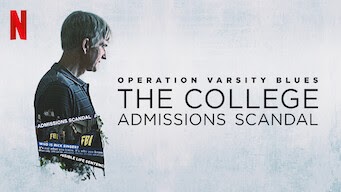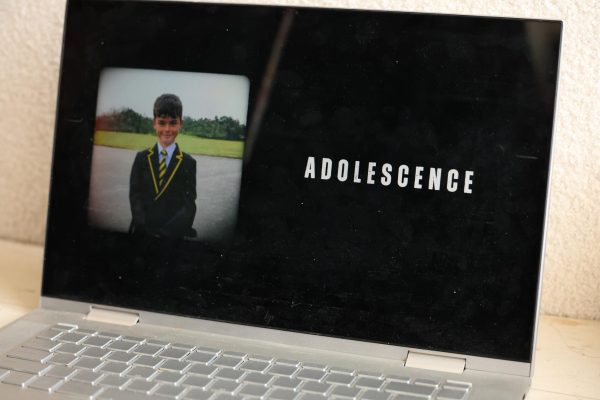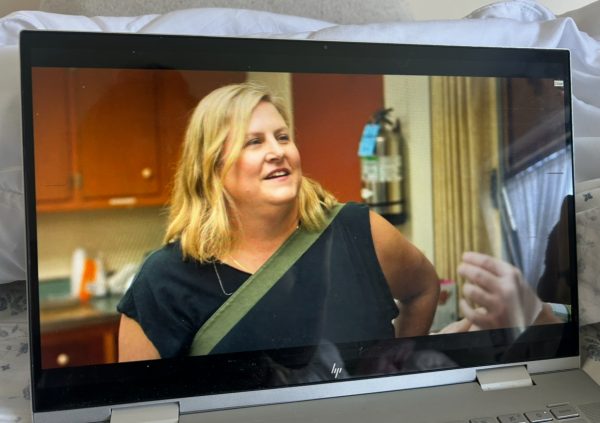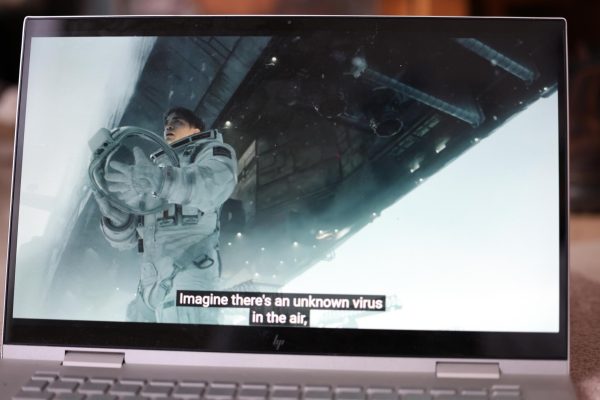“Operation Varsity Blues: The College Admissions Scandal” Addresses Corruption in Higher Education

The 2021 Netflix documentary “Operation Varsity Blues: The College Admissions Scandal” uses dramatic reenactments to convey wiretapped phone conversations. (Courtesy of Facebook)
When you Google the most prestigious universities in the U.S., you are met with a predictable list: Princeton, Harvard, Columbia, MIT and Yale. In the U.S., we understand prestige to mean status and quality — but the word prestige is actually French, and it means deceit. Deceit is a fitting way to describe the 2019 college admissions scandal, a criminal conspiracy to get rich kids into the top universities.
The 2021 Netflix documentary “Operation Varsity Blues: The College Admissions Scandal” successfully takes a deep dive into the origin and downfall of this white-collar scam that put some of America’s richest parents in prison.
The documentary uses a reenactment dramatization style to convey the story. Actors portray Rick Singer, the mastermind behind the scam, and some of the parents and coaches involved. These dramatic reenactments are interspersed between interviews and original footage to give a comprehensive overview of the scandal.
Normally, I would hate this style of documentary, as it can be tacky and often distracts from the real story, but it works really well in “Operation Varsity Blues: The College Admissions Scandal” because the FBI mainly used wiretapping in their investigation. Listening to an hour and 45 minutes of recorded phone conversations would be boring, but watching actors say lines that came from the real phone conversations is engaging.
The casting is also very well done — the actors really look like the people involved — but it is sometimes at the expense of acting skills. Each time the documentary introduces a new “character,” a computer screen appears with a google image search of the actual person and then cuts to the actor talking on the phone. This introduction technique eliminates confusion that sometimes occurs with reenactment documentaries.
Additionally, the reenactments allow the audience to get a better understanding of Rick Singer and his clients’ lifestyles. Throughout the documentary, actors talk on their phones while wandering around mansions, sipping top-shelf whiskey and zipping through Hollywood Hills in expensive cars. That is what made the college admissions scandal such a hot topic in 2019 — it was sensational. We got a glimpse into the culture of high-wealth societies where people will do anything for prestige and power. The documentary does a really good job of peeking into that world and continuing the conversation about injustice in the higher education system.
During an interview segment of the documentary, Naomi Fry, a staff writer for The New Yorker, says, “In America, we love the wealthy and we hate the wealthy. They disgust us and they fascinate us. This story was the perfect opportunity to see how rich people live and the realities of the system being exposed.”
The documentary is emotional, especially as a college student myself. It opens with home videos of high school seniors opening decision letters from their dream schools. Some get in, some don’t. In one vlog-style clip, a student talks about how upset she is that she didn’t get into her dream college, but adds, “I know the people that got in are super deserving.” The documentary then cuts to a YouTube video of Olivia Jade, the daughter of one of Singer’s most famous clients.
“Operation Varsity Blues: The College Admissions Scandal” does a good job of telling the story of the scandal, but where it really excels is in the dysfunction in the higher education system. It gets to the root of why a criminal conspiracy like this would occur. The ultimate message is that colleges have created a system that will always favor the rich because it benefits the schools. Large donations, competitive admissions and prominent students are what make these schools prestigious, so why would they want to change the system?
Singer was famous for his illegal side-door approach — certainty of admission for a bargain price — but the legal back door approach (large-sum donations) is still wide open. These doors will always exist, and those who can afford to will always open them.

Ava Erickson is a senior from Denver. Her passion for writing and language led her to double major in journalism and Spanish studies. She began working...












































































































































































































